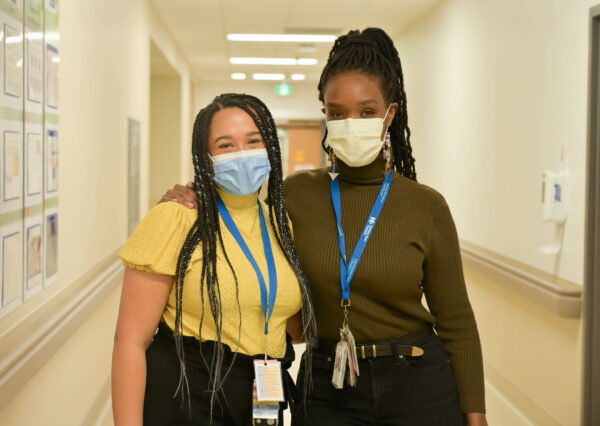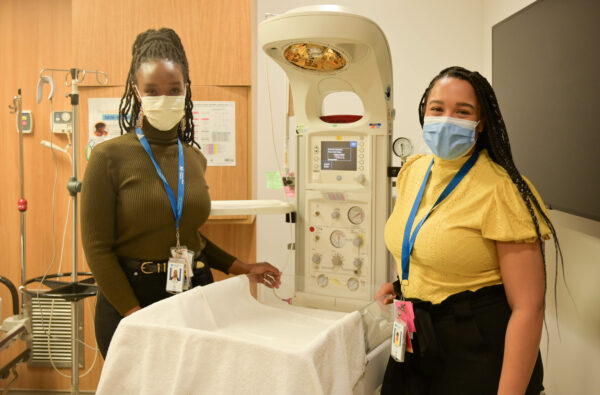Black History Month: The Midwife Student POV
21
Feb
2023
Hannah Cole and Tumanini Iyaruu are Senior Midwifery Students at West End Midwives in Toronto and have been working at Humber River Health since May 2022. In honour of Black History Month, the two shed insight on the significance of continued Black History celebrations and the importance of demonstrating Black Resistance within a healthcare environment.

Why is it significant to celebrate Black History Month?
Hannah: Historically, Black Bodies were not seen as equal people, they were not even recognized as human. Although we unfortunately cannot rewrite the past, the best thing we can do is remind ourselves on a daily basis that Black Bodies are human. We remind ourselves that the Black Community is important and should be valued and celebrated.
Tumanini: I think using this time to improve the recognition of Black People within the healthcare profession, is an important way to meet their needs and address their well-being. This closely ties in to how I view my role and power in this work. Often, what is missing for Black People in a healthcare setting is cultural congruence, where you have the option to have a provider that looks like you and understands your cultural context. A lot of the time, patients will say things like “I didn’t know there were Black midwives…Where can I find a Black midwife?” That need is there and as a student going through the program, I take a lot of pride in being able to offer that option to other Black individuals, if that is what is necessary for them to feel safe accessing healthcare.
This year’s theme is “Black Resistance.” How do you demonstrate “Black Resistance” in your profession?
Hannah: I think I show Black Resistance being in the medical field, period. I think that, historically, Black Bodies have been under-appreciated, especially in medicine. I think just sitting here in the position that I am in, part of a program that works in the medical context, shows others in the Black Community that we can be here too and deserve to be here. It is an ongoing representation that the more, older Black Bodies we have in medicine, the more little Black Bodies begin thinking “I can be there too!” It slowly starts changing the game, where we are not only seeing white faces as physicians, as midwives, as physiotherapists, and so on. Black People deserve to be in these spaces too.
Tumanini: In a healthcare context, it is always important for me to speak with other Black People about what their options are in reproductive healthcare. I work a lot with African, Caribbean, and Black People in other settings, particularly regarding HIV. Providing Black People with accurate, factual information, and ensuring they understand how to navigate the healthcare system, is how I feel proud of myself. It makes me happy knowing that Black People have the appropriate access to information to make choices for themselves.

This Black History Month, Hannah and Tumanini encourage others to uplift and celebrate their Black coworkers. “Although Black History Month is so important,” explained Hannah, “it should not be something we just do in February.”
The midwifery students also encourage institutions to implement policies around addressing anti-Blackness. “I think it is really wonderful to recognize and celebrate the Black Community,” explained Tumanini, “but it is also important for organizations to implement tangible actions at an institutional level to assist long term. This ensures safe, continued care, and that the needs of the Black Community are addressed.”
